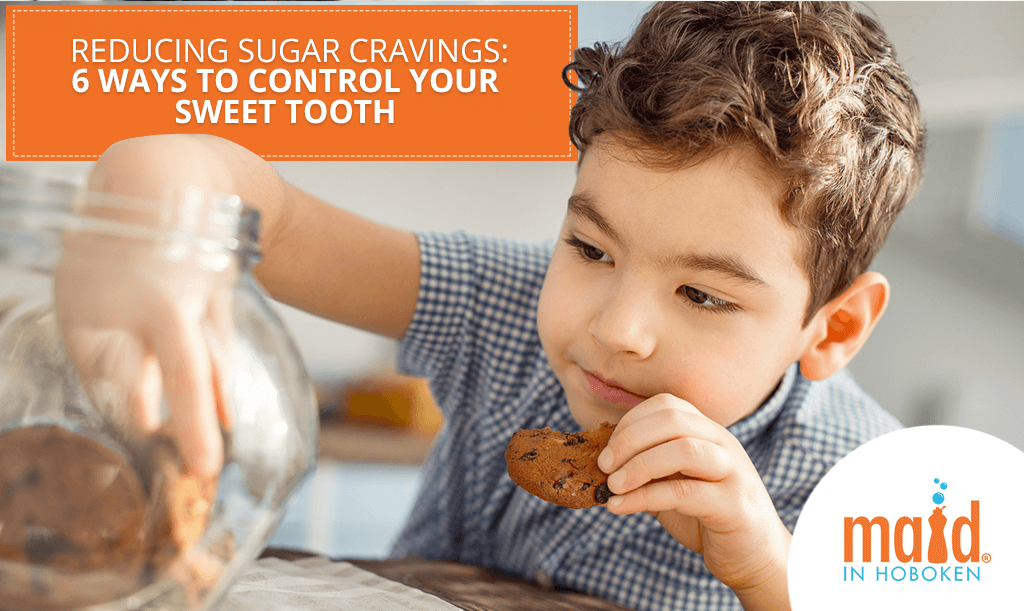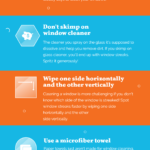Overeating sugar is one of the worst things you can do to your body. It can have many adverse effects on your health. It has been shown to contribute to obesity, type 2 diabetes, heart disease, cancer and tooth decay.
Yes, sugar is naturally found in foods like vegetables and fruits, but these foods have little effect on your blood sugar and are necessary for a healthy diet. They also contain lots of healthy vitamins and minerals. The danger is from added sugars in processed foods.
Why do we crave sugar and sweets?
"Sweet is the first taste humans prefer from birth," says Christine Gerbstadt, MD, RD, a dietitian and American Dietetic Association (ADA) spokeswoman. The taste of sugar also releases endorphins that calm and relax us, and offer a natural "high," says Susan Moores, MS, RD, a registered dietitian and nutrition consultant in St. Paul, Minn.
We have been conditioned to accept the massive amount of sugar in our current diets and often think of it as 100% normal.
Here are six simple ways how to stop sugar cravings naturally:
1. Cut back on sugar-loaded drinks
Some of your favorite beverages may contain a heap of added sugar. Reading a label and knowing if it is sugar isn’t as easy as we wish. Artificial sugars are still a sugar. Sodas, energy drinks, sports drinks and fruit drinks contribute an astounding 44% of the added sugar in the American diet. Too many of the so-called "healthy" drinks, such as fruit juices and smoothies, also have a lot of sugar in them!
Your body does not recognize calories from beverages in the same way it does from meals. Sugary drinks will not make you feel as full, in fact, they will increase your cravings for sweet things, so you consume lots of calories without feeling full.
Here are some better, lower-sugar drink options:
- Water - it's free and has zero calories.
- Sparkling water with a slice or squeeze of fresh lime or lemon - your homemade soda.
- Water with mint and cucumber -an amazingly refreshing beverage in warm weather.
- Herbal teas - you can drink them hot or cold with ice.
- Tea and coffee - stick to unsweetened tea or black or flat white coffee.
Cutting back on your favorite sugary drinks can reduce your sugar intake big time and will help you with your weight loss.
2. Avoid sugar-loaded desserts
Most desserts don't provide nutritional value. They are packed with sugar, which causes blood sugar spikes and can leave you feeling tired, hungry and craving more sugar.
If you still crave something sugary and sweet, try these alternatives on what to eat when craving sweets:
- Fresh fruit- they are naturally sweet and full of fiber, vitamins, and minerals.
- Greek yogurt with fruits or cinnamon - it's rich in protein, calcium, and vitamin B12, but check the label first for added sugars!.
- Baked fruit with cream - you can try apples, pears or plums.
- Dark chocolate - In general, the higher the cocoa content, the lower the sugar.
Swapping sugar-heavy desserts for fresh or baked fruit not only reduces your sugar intake, but it also increases the fiber, vitamins, minerals, and antioxidants in your diet!
3. Eat full-fat foods
Low-fat alternatives to your favorite foods — peanut butter, yogurt, salad dressing — are everywhere. If you've been told that fat is bad for you, it may feel natural to reach for these alternatives, rather than the full-fat versions, especially when you're trying to lose weight. However, the alarming truth is that they usually contain more sugar and sometimes more calories than their full-fat counterparts! Plus your body needs good fat, and many of those reduced fat foods have taken the good stuff out of them.
High sugar intake can cause weight gain ultimately leading to obesity, which disproves the reason you might have chosen a low-fat food in the first place. So, when you're trying to cut your sugar intake, it's often better to choose the full-fat version instead.
4. Eat whole-grain foods
Whole-grain foods have not been refined or processed. They are also free of additives and other artificial substances.
At the other end are ultra-processed foods. These are prepared foods that contain salt, sugar, and additional unhealthy fats, but also many substances not usually used in home cooking. These substances can be artificial flavors, colors, emulsifiers or other additives. Did you know that those artificial things are often prohibited in European countries because of their side effects?
Examples of ultra-processed foods are soft drinks, desserts, ice cream, cereals, pizzas, cookies, pies, and even some yogurts!
You can try to cook from scratch so you can avoid added sugars. You don't have to prepare extravagant meals. Use simple tricks such as marinating meat and fish in herbs, spices, and olive oil for delicious results! When baking, consider using honey instead of the usual white sugar, just decrease the amount of sugar by half to substitute the honey.
5. Be careful with so-called “healthy” processed snack foods
Most people know that candy and cookies contain a lot of sugar so that they may look for "healthy" snack alternatives. Surprisingly, snacks like granola bars, protein bars, and dried fruit can contain as much, if not more, sugar than their unhealthy rivals, such as chocolate bars.
Or you can try these healthy snack ideas instead:
- A handful of nuts - it's packed with useful calories, protein, and healthy fats. In act, everyone should have one handful of nuts every day.
- Trail mix- you can make sure it's just nuts and dried fruit, without added sugar.
- No-added-sugar jerky- full of protein and low in calories.
- Hard-boiled egg - this superfood is high in protein, vitamins, and minerals.
- Fresh fruit - contains natural sugar to satisfy your sugar cravings.
Don't be fooled by those "healthy" marketing messages on some snacks, read their labels! Instead, be prepared to take low-sugar snacks with you when you're on the go.
6. Eat more protein and fat
A massive amount of sugar intake is linked to increased appetite and weight gain. A diet low in added sugar but high in protein and fat has the opposite effect, reducing hunger and even lowering your food intake. Added sugars in your diet, especially fructose or sucrose, increase your appetite, creating insatiable cravings for sweet things. Then the signals that usually let your brain know that you are full do not work correctly, causing you to overeat, suffer digestive problems, and gain weight.
On the other hand, protein has been proven to reduce appetite and hunger. If you feel full, then you are less likely to crave the quick hunger fix that sugar provides. Did you know that is one reason to eat a good breakfast in the morning? A healthy protein-rich breakfast will help you to feel full longer. A study showed that increasing protein in your daily diet by just 25% could decrease your sweet cravings by as much as 60%.
Healthy fats contribute to your energy levels because they contain approximately nine calories per gram, compared to 4 calories per gram of protein or carbs. According to the fat content of food, fat receptors in the mouth and gut alter the way it's digested. High fat intake is also associated with a reduced appetite.
To curb sugar cravings, stock up on protein and fat-rich whole foods, such as meat, fish, eggs, full-fat dairy products, avocados, and nuts.
Overindulgence of sugar in your diet can be incredibly harmful, and it is linked to many chronic diseases, including cancer, type 2 diabetes, heart disease and obesity.
It is essential to avoid adding sugars to your diet, drinks, and foods such as carbonated beverages or soda pop, candies, and certain desserts. However, you need to also watch for hidden sugars in common processed foods, including condiments like catsup and mustard, sauces, low-fat meals, and so-called “healthy” snacks.
To be healthy, you need to be in control of your sugar intake and avoid consuming excessive amounts of it, instead choose a diet based on whole-grain foods, rather than highly processed substitutes.
After removing those unhealthy foods from your kitchen that can cause high sugar spikes, you should notice that you feel more energetic and less stressed. While you spend more time in the kitchen, you might find that you could still use a little help keeping your house clean. If so, consider hiring a professional to assist you with your cleaning needs so you enjoy your new profound, healthier lifestyle!





